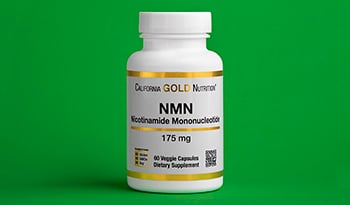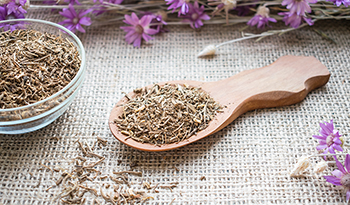Yaşlanma Sürecini Yavaşlatmaya Yardımcı Olacak Doğal Yaklaşımlar

1513'te İspanyol kaşif Juan Ponce de León ve diğer fatihler, şimdi Florida olarak bildiğimiz yere indi. Efsane bize onun ve ekibinin efsanevi “gençlik çeşmesini” aradıklarını söylüyor. Tabii ki, asla bulamadılar, ancak yüzyıllar sonra, çoğu hala sonsuza kadar genç olan sihirli bir çözüm arıyor. Ve saati geri çevirmek imkansız olsa da, bilim adamları yaşlanmanın etkilerini yavaşlatmak hakkında daha fazla şey keşfettiler.
Yaşlanma, her canlının yaşadığı doğal bir süreçtir - doğduğumuz andan itibaren hücrelerimiz yaşam-ölüm sürecine girer. Bu gerçeğe rağmen, kendini koruma yasası çoğumuzu süreci yavaşlatmaya çalışmak için motive ediyor. Yaşlanmanın etkileriyle uğraşan hastalar bana neden ilk etapta yaşlanmamız gerektiğini sordu. Bilim adamları arasında bile nedenler tam olarak anlaşılamamıştır; ancak, çeşitli teoriler önerilmiştir ve çalışmalar çoktur.
Umut şu ki, neden yaşlandığımızı anladığımızda, belki de süreci yavaşlatabilir ve aynı zamanda artrit, kalp hastalığı, hafıza kaybı ve hatta gri saç gibi yaşa bağlı rahatsızlıkların gelişme olasılığını azaltabiliriz.
Ömrünü Uzatmaya Yardımcı Olan Yaşama Alışkanlıkları
Bu alanı incelemeye devam ederken, yaşlanma yörüngesinin belirli yaşam tarzı değişiklikleri yapılarak değiştirilebileceğini biliyoruz. Bu diyet ve yaşam tarzı değişiklikleri potansiyel olarak yaşamı koruyan genleri etkinleştirirken aynı zamanda hastalığa neden olan ve yaşa neden olan genleri kapatabilir, epigenetik olarak bilinen bir fikir.
Kalıtsal genlerimiz genetik kaderimizi tam olarak belirlemez. vitamin, mineral, yeşil yapraklı sebzeler, fındık, tohumlar, ve kültürlü gıdalar açısından zengin, iyi yaralanmış bir diyetle birlikte düzenli egzersiz de hastalık direncini ve daha uzun bir yaşam süresini arttırmada önemlidir. Yardımcı olduğu gösterilen başka davranışlar da vardır:
Kalori Kısıtlaması
Çalışmalar, kalori alımını yüzde 30 azaltmanın yaşam süresini uzatan özelliklere sahip olduğunu gösteriyor. Birçokları için zor olsa da, minimum işlenmiş gıdalar ve basit karbonhidratlar içeren düşük şekerli bir diyet tüketmek, daha az kalori yemeyi kolaylaştırabilir. Aralıklı oruç yardımcı olabilir. Sadece günde üç öğünden ikiye geçmek, kalorilerde yüzde 33'lük bir azalmaya neden olabilir.
Tütünden Kaçınma
Tütün kullanımı, dünya çapında kendi kendine neden olan erken yaşlanmanın, kalp hastalığının ve ölümün önde gelen nedenidir. Kullanım, dünya çapında yılda 7 milyondan fazla erken ölümle sonuçlanır. Hastalarıma sık sık tütün kullanımının hayatın hızlı ileri düğmesine bastığını söylüyorum.
Aşağıdaki takviyeler ayrıca yaşlanma sürecini, kronik hastalık semptomlarını ve yaşlanmanın fiziksel görünümünü azaltmaya yardımcı olmak için birçok kişi tarafından alınır.
Kolajen
Kaslar, kemikler, deri ve tendonlar esas olarak insan vücudunda en bol bulunan protein türü olan kolajenden oluşur. Kolajen insan vücudundaki tüm proteinin yüzde 30 ila 35'ini oluşturur, bağ dokusu oluşturur, cildimizi stabilize eder ve eklem hareketine ve esnekliğine izin verir.
Yaşlandıkça daha az kolajen üretiyoruz. Bu, yaşamın stres faktörleriyle birlikte ve oksidatif hasara neden olan kırışıklıklara neden olur. Kolajen almak muhtemelen yardımcı olabilir. 2008 yılında yapılan bir araştırma, kollajen peptidin (protein) UV-B kaynaklı cilt hasarını ve güneşle ilgili yaşlanmayı bastırmak için bir diyet takviyesi olarak faydalı olduğu sonucuna varmıştır. Daha sonra, Kozmetik Dermatoloji Dergisi'nde 2015 yılında yapılan bir araştırma, oral kolajen takviyesi ile benzer sonuçlar bildirmiştir. Araştırmacılar, “Kolajen peptitlerle oral takviye, cilt yaşlanmasının ayırt edici özelliklerini iyileştirmek için etkilidir” sonucuna vardılar.
2014 yılında yapılan bir araştırma, kolajen takviyesinin cilt nemini ve elastikiyetini arttırdığı sonucuna varmıştır. Aynı yıl, başka bir çalışmada test deneklerinin plaseboya karşı kollajen (3 mg/gün) ve astaksantin (2 mg/gün) kombinasyonunu almasını sağladı. Takviyeleri alan kişiler cilt elastikiyetini ve bariyer korumasını geliştirdiler.
Bu nedenlerden dolayı, kollajeni yaşlanma karşıtı bir takviye olarak görüyorum. Kolajen, kapsüller, tozlar ve doğrudan cilde uygulanabilen topikal bir serum şeklinde mevcuttur.
Koenzim Q10
Koenzim Q10 (CoQ10), ubikinon olarak da bilinir, tüm yaşam için gerekli olan doğal olarak oluşan bir antioksidan besindir. Koenzim Q10, hücrelerimizin ATP adı verilen bir molekül şeklinde enerji üretmesi için gereklidir. Bu enerji yaratımı kısmen vücuttaki tüm enerjiyi üreten hücresel enerji santralleri olan mitokondri tarafından yapılır.
Yaşlandıkça, CoQ10'un kan ve hücresel seviyeleri azalır. Bunun nedeni öncelikle üretimin azalması ve bağırsak sistemimiz tarafından gıdalardan emilimin azalmasıdır.
Dünya nüfusu yaşlandıkça bilişsel bozukluk ve bunama daha yaygın hale geliyor ve hem etkilenen kişi hem de bakıcılar için önemli bir zorluğa neden oluyor. Çalışmalar kandaki azalan CoQ10 seviyelerinin demans ve Alzheimer hastalığı gelişme riskini artırdığını göstermiştir.
2015 yılında yapılan bir araştırma, günde üç kez 100 mg'lık dozlarda CoQ10'un Parkinson hastalığı olanlarda bilişsel düşüşü yavaşlatmaya yardımcı olabileceğini gösterdi. Diğer çalışmalar CoQ10'un Alzheimer hastalığı olanlarda fonksiyon ve hafızayı iyileştirmede önemli bir rol oynadığını göstermektedir.
Koenzim Q10, gözlerin makula dejenerasyonu gibi yaşa bağlı yaygın durumları önler. Kozmetik olarak topikal CoQ10 uygulaması ile yüz kırışıklıkları azaltılabilir.
Kapsül ve topikal formülasyonlarda mevcuttur. Önerilen oral doz günde 100 ila 300 mg'dır.
Esansiyel Yağ Asitleri
Çoklu doymamış yağ asitleri veya PUFA'lar olarak da bilinen Omega-3 yağ asitleriinsan sağlığında önemli bir rol oynar. Kalp, beyin ve eklemler için sayısız faydası olduğuna inanılmaktadır. Omega-3'ler ayrıca yaşlı popülasyonlarda yaygın olarak görülen iltihabı azaltmaya yardımcı olur. Beslenme Dergisi'nde 2014 yılında yapılan bir araştırma, insanların çoğunun diyetlerinde yeterince esansiyel yağ asidi tüketmediğini ve bunun da yaşlanmayla ilişkili sağlık sorunlarına yol açabileceğini göstermiştir.
2017 yılında yapılan bir çalışma, omega-3 yağ asitlerinin vasküler fonksiyonda önemli bir iyileşme ve kan basıncının düşmesine neden olduğunu göstermiştir. Aynı yıl Future Science'da yapılan bir araştırma, omega-3 balık yağlarının kalp hastalığına yol açan iltihabı azaltabileceğini gösterdi. Aterosklerozda yapılan bir başka 2017 araştırması, kandaki yüksek omega-3 seviyelerinin, dünya çapında insanların önde gelen katili olan kalp hastalığından ölümleri yüzde 30 oranında azaltabileceğini gösterdi.
Omega-3 yağ asitleri, balık (uskumru, morina ve somon en zenginler arasındadır), ceviz, chia tohumu, keten tohumu, kenevir tohumu, avokado ve nattodahil olmak üzere çeşitli besin kaynaklarında bulunabilir. Diyete ek olarak, bu önemli besinler kapsüller veya sıvı formülasyonlar halinde alınabilir. Önerilen doz günde 1.000 mg ila 4.000 mg arasında değişmektedir.
Resveratrol
Bazı bilim adamlarına göre, resveratrol yaşamı koruyan bir bileşik olabilir. Bazı çalışmalar, yaşa bağlı katarakt, vasküler hastalık, demans gibi beyin bozuklukları ve diğer kronik hastalıkları önlemeye yardımcı olma yeteneğine sahip olduğunu göstermektedir. Resveratrol, Biofactors'daki 2018 çalışmasına göre telomerler üzerindeki bir etki nedeniyle yaşam süresini artırmaya da yardımcı olabilir.
Besin resveratrol kaynakları şunları içerir:
- Kırmızı şarap
- Yaban mersini
- yabanmersini
- Üzüm
- Fıstık ve antep fıstığı
- Bitter çikolata
Bilim adamları ayrıca, DNA'mızın uçları olan telomerlerin kısalmaya karşı korunmasına yardımcı olan birkaç yaşam tarzı davranışı keşfettiler. Bunlar arasında rutin egzersiz (haftada beş kez en az 30 dakikalık ılımlı egzersiz) ve yaşam süresini uzatabilecek gıda alımını yüzde 30 azaltma yer alır.
Ek resveratrol, bilimsel çalışmalara göre DNA'mız üzerinde de benzer bir etkiye sahiptir. Resveratrol, ömrünü uzatmaktan sorumlu proteinleri yapan SIRT1 ve SIRT2 genlerini aktive eder.
Bilimsel literatürde yapılan bir araştırma, resveratrol ve Alzheimer hastalığı üzerine 300'den fazla çalışma göstermektedir. UCLA'dan Dr. Dale Bredesen, Alzheimer hastalığının yeni tedavi programına resveratrol'u dahil ediyor.
Resveratrolün fare böbrekleri üzerindeki etkilerine ilişkin 2018 yılında yapılan bir çalışma, bazı umut verici sonuçlar gösterdi ve uygulandığında yaşlanan bir böbrekte görülen patolojik etkilerin azaldığını gösterdi.
Benzer şekilde, başka bir 2018 çalışması, resveratrolün yaşlanan sinir-kas bağlantılarını ve kas liflerini yavaşlattığını gösterdi.
Resveratrol öncelikle bir kapsül formülasyonunda gelir.
Çim Kabuğu Ekstresi (Pycnogenol)
Güçlü bir antioksidan, çama kabuğu özüveya piknogenol, başlangıçta Kuzey Amerika ve Asya'nın yerli halkı tarafından şifalı bir bitki olarak kullanılmıştır. Fransa için Kanada'yı “iddia eden” Fransız keşif gezisi Jacques Cartier, 1535'te keşif gezisi sırasında C vitamini alımının yetersiz seviyelerinin neden olduğu bir durum olan iskorbüt tedavisi için çama kabuğu özü kullandığı bildirildi.
Antioksidanlar doku ve organları, yaşlanmaya neden olan bir oksidasyon mekanizması olan zararlı serbest radikallere karşı koruyan maddelerdir. Oftalmik Araştırmada yapılan bir araştırma, piknogenolün antioksidan gücünün C vitamini, E vitamini, alfa-lipoik asitve koenzim Q10'den daha güçlü olduğunu göstermiştir.
Pycnogenol'ün kataraktları önlemeye, kalp sağlığını optimize etmeye, kan basıncını düşürmeye, hafızayı iyileştirmeye ve artrite bağlı ağrıyı azaltmaya yardımcı olduğu gösterilmiştir. Tüm bu koşullar yaşlandıkça daha yaygın hale gelir.
Çim kabuğu özünün bir başka faydası da cildin korunmasına yardımcı olduğu görülmesidir. Güçlü antioksidan gücü cildi ultraviyole güneş ışığı hasarına karşı korumaya yardımcı olabilir ve hatta yüze topikal olarak uygulanabilir. Antioksidan özellikleri ayrıca kolajen ve elastik dokunun cildin yaşlanmasının birincil nedeni olan oksidatif hasardan korunmasına yardımcı olur.
Çim kabuğu özü hem kapsül hem de topikal formüllerde mevcuttur.
Zerdeçal
Zerdeçal, Curcuma longa veya Hint safranı olarak da bilinen, zencefil ailesinin köklü bir bitkisidir ve genellikle anti-enflamatuar, antioksidan ve sindirim sağlığı özellikleri nedeniyle tüketilir. Zerdeçalda bulunan birincil molekül olan Curcumin , sağlık yararlarının çoğunu sağladığına inanılmaktadır. Pek çok insan zerdeçalı yiyeceklerini geliştirmek için son 4.000 yıldır baharat olarak kullanırken, zerdeçal tıpta ve yaşlanmayı geciktirmede de önemli bir rol oynamıştır.
Zerdeçal, Hastalıklar'daki 2016 raporuna göre, birçok kişi tarafından yaşlanma sürecinin ana nedeni olduğuna inanılan oksidasyonu önlemeye yardımcı olabilir. Nöral Rejenerasyon Araştırması'nda 2017 yılında yapılan bir araştırma, zerdeçalın beyindeki sinir bağlantılarını, her ikisi de yaygın yaşlanma süreçleri olan iltihaplanma ve oksidatif hasardan korumaya yardımcı olduğunu gösterdi.
Hafıza kaybı aynı zamanda olgunlaştıkça birçok kişinin karşılaştığı yaygın bir rahatsızlıktır. Zerdeçal faydalı olabilir. Bir bilimsel çalışma zerdeçalın beyindeki amiloid plak birikimini azaltmada rol oynayabileceğini gösterdi. Plakın Alzheimer hastalığının nedeni olduğuna inanılmaktadır. 2017
Alzheimer Hastalığı Dergisi'nde yapılan araştırma, zerdeçalın hafıza kaybını önlemede de önemli bir rol oynayabileceği sonucuna varmıştır. Beynini daha genç tutmak isteyenler, takviye rejimlerine zerdeçal eklemeyi düşünmelidir.
Zerdeçal, kapsül, toz, çay ve gıda baharatı olarak mevcuttur.
C Vitamini
C vitamini askorbik asit veya askorbat olarak da bilinir. Son 50 yılda en çok araştırılan vitaminlerden biri olmuştur. 1968'den bu yana C vitamini üzerine 53.000'den fazla çalışma yapılmıştır. Araştırma, C vitamininin daha güçlü bir bağışıklık sisteminin yanı sıra kardiyovasküler, beyin ve yaşlanma karşıtı cilt sağlığını geliştirmeye yardımcı olduğunu gösteriyor.
C Vitamini Eksikliğinin Belirtileri
- Morarma
- Yorgunluk ve depresyon
- Diş eti kanaması
- Eklem, kas ve kemik ağrısı
C vitamini alımı, 60 yaşın üzerinde sık görülen bir durum olan kataraktın önlenmesine yardımcı olabilir.
C vitamini kolajen üretiminde önemli bir rol oynar. Kolajen dişleri diş etlerine güçlü bir şekilde tutturmak için de önemlidir. Sigara içmek C vitamini kan seviyelerini düşürdüğünden, sigara içenler arasında diş kaybı yaygındır.
C Vitamininin Antioksidasyon Faydalarını En Üst Düzeye Çıkarma
C vitamini açısından zengin bir diyet tüketmek, antioksidan faydalarını optimize etmeye yardımcı olur. C vitamini yönünden zengin bir diyetin tüketilmesinin de birçok cilt ve yaşlanma karşıtı faydası vardır. C vitamininin bir kollajen protein takviyesi ile birlikte takviye olarak alındığı bir 2018 çalışmasına göre, sonuçlar sadece 12 hafta sonra cilt sağlığında önemli bir iyileşme gösterdi.
Ek olarak, topikal C vitamininin doğrudan yüze ve vücudun diğer bölgelerine uygulanması, çalışmalara göre cildin güneş hasarına karşı korunmasına yardımcı olur. C vitamini, cilt için oral takviye, toz ve topikal formülasyonlar olarak mevcuttur.
Yaşlanma Karşıtı Uçucu Yağlar
Bazı uçucu yağlar , yaşlanma karşıtı, kırışıklık önleyici ve cilt güzelleştirici özellikleri nedeniyle de sıklıkla kullanılmaktadır. En yaygın kullanılanlardan bazıları arasında buhur, jojoba, lavanta, nar çekirdeği yağıve kuşburnubulunur. Topikal olarak uygulanırlar. Bununla birlikte, lokal tahriş sonucunun olmamasını sağlamak için önce yüz dışı bölgeye uygulanmalıdır.
Referanslar:
- Midori TANAKA, Yoh-ichi KOYAMA & Yoshihiro NOMURA (2009) Kolajen Peptit Yutulmasının UV-B Kaynaklı Cilt Hasarı, Biyobilim, Biyoteknoloji ve Biyokimya Üzerindeki Etkileri, 73:4, 930-932, DOI: 10.1271/bbb.80649
- Asserin, J., Lati, E., Shioya, T. ve Prawitt, J. (2015), Oral kollajen peptit takviyesinin cilt nemi ve dermal kollajen ağı üzerindeki etkisi: ex vivo modelden ve randomize, plasebo kontrollü klinik çalışmalardan elde edilen kanıtlar. J Cosmet Dermatol, 14:291—301. doi: 10.1111/jocd.12174
- J Med Gıda. 2014 Temmuz; 17 (7): 810-6. doi: 10.1089/jmf.2013.3060. Epub 2014 Haziran 23.
- Serum koenzim Q10 ve demansı etkisiz hale getirme riski: Topluluklarda Dolaşım Riski Çalışması (CIRCS) Yamagishi, Kazumasa ve ark. Ateroskleroz, Cilt 237, Sayı 2, 400 — 403
- Eur Neurol. 2015; 73 (3-4) :205-11. doi: 10.1159/000377676. Epub 2015 Mart 10.
- Curr Yaşlanma Bilimi 2015; 8 (3): 235-40.
- Uzman Rev Neurother. 2015 Ocak; 15 (1): 19-40. doi: 10.1586/14737175.2015.955853. Epub 2014 Eylül 22.
- Makula Dejenerasyonu http://www.eurekaselect.com/154613/article
- Biyofaktörler. 2017 Ocak 2; 43 (1): 132-140. doi: 10.1002/biof.1316. Epub 2016 Ağustos 22.
- Papanikolaou Y, Brooks J, Reider C, Fulgoni VL. ABD'li yetişkinler balık ve omega-3 yağ asidi alımı için önerilen seviyeleri karşılamıyor: NHANES 2003-2008'den gözlemsel verileri kullanan bir analizin sonuçları. Beslenme Dergisi. 2014; 13:31. doi:10.1186/1475-2891-13-31.
- Nutr Metab Cardiovasc Aralık 2017 Mart; 27 (3): 191-200. doi: 10.1016/j.numecd.2016.07.011. Epub 2016 Temmuz 26.
- Bäck M. Ateroskleroz ve koroner arter hastalığında omega-3 yağ asitleri. Gelecek Bilimi OA. 2017; 3 (4): FSO236. doi: 10.4155/fsoa-2017-0067.
- Ateroskleroz. 2017 Temmuz; 262:51-54. doi: 10.1016/j.aterosclerosis.2017.05.007. Epub 2017 Mayıs 6.
- Kılıç Eren M, Kilincli A, Eren Ö. Resveratrol ile İndüklenen Erken Yaşlanma, DNA Hasarı Aracılı SIRT1 ve SIRT2 Aşağı Düzenleme ile İlişkilenir. Hofmann TG, ed. PLoS ONE. 2015; 10 (4): e0124837. doi: 10.1371/journal.pone.0124837.
- Biyofaktörler. 2018 Ocak; 44 (1): 69-82. doi: 10.1002/biof.1400. Epub 2017 Aralık 6.
- Mech Yaşlanma Geliştirme 2009 Ağustos; 130 (8): 528-37. doi: 10.1016/j.mad.2009.06.005. Epub 2009 Haziran 25.
- Kim EN, Lim JH, Kim MY, vd. Bir Nrf2 aktivatörü olan Resveratrol, yaşlanmaya bağlı ilerleyici böbrek hasarını iyileştirir. Yaşlanma (Albany NY). 2018; 10 (1): 83—99. doi: 10.18632/yaşlanma.101361
- Stockinger J, Maxwell N, Shapiro D, DeCabo R, Valdez G.Kalori Kısıtlama Mimetikleri Nöromüsküler Sinapsların ve Kas Liflerinin Yavaş Yaşlanmasını. J Gerontol A Biol Sci Med Sci. 2017; 73 (1) :21—28. doi: 10.1093/gerona/glx023
- Griffiths K, Aggarwal BB, Singh RB, Buttar HS, Wilson D, De Meester F. Gıda Antioksidanları ve Antiinflamatuar Özellikleri: Kardiyovasküler Hastalıklar ve Kanseri Önlemede Potansiyel Bir Rol. Battino M, ed. Hastalıklar. 2016; 4 (3): 28. doi: 10.3390/hastalıklar4030028.
- Flores G. Curcuma longa L. özü yaşlanma sürecinde kortikal nöral bağlantıyı geliştirir. Nöral Yenileme Res. 2017; 12 (6): 875—880. doi: 10.4103/1673-5374.208542
- Alzheimer Hastalığı Dergisi, cilt 55, sayı 2, sayfa 797-811, 2017
- J Alzheimer Hastalığı 2017; 60 (2) :451-460. doi: 10.3233/JAD-170354.
- Clin Cosmet Investig Dermatol. 2018 Nisan 30; 11:195-201. doi: 10.2147/CCID.S150269. eCollection 2018.
- El-Niaimi F, Chiang NYZ. Topikal C Vitamini ve Cilt: Etki Mekanizmaları ve Klinik Uygulamalar. Klinik ve Estetik Dermatoloji Dergisi. 2017; 10 (7): 14-17.
FERAGAT:SAĞLIK MERKEZİ tanı koymayı hedeflememektedir...
















































































 İçindekiler
İçindekiler















